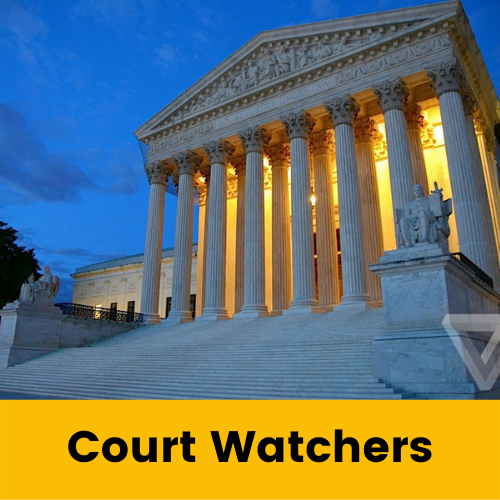Judicial misconduct refers to any unethical, illegal, or improper behavior by a judge in the course of their duties. Bias or an appearance of bias not directed toward a particular class is a type of misconduct where a judge displays partiality or prejudice in a case, without it being directed towards a particular class of individuals.
Judges are expected to be impartial and unbiased in their decision-making. However, in some cases, a judge may have a personal bias or prejudice that affects their ability to make fair and just decisions. This type of misconduct can occur when a judge has preconceived notions or personal beliefs that influence their decisions, regardless of the facts or evidence presented in the case.
The appearance of bias can also be problematic, even if the judge is not actually biased. If a reasonable person would perceive that the judge is biased, this can create doubt about the fairness of the proceedings and undermine the public's confidence in the legal system.
It is important to note that the bias or appearance of bias does not have to be directed towards a particular class of individuals, such as a particular race or gender. Even if the bias is not directed towards a specific group, it can still create a conflict of interest or undermine the impartiality of the judge.
Overall, bias or an appearance of bias not directed towards a particular class is a form of judicial misconduct that can harm the integrity of the legal system and raise questions about the fairness of the proceedings.
Misconduct records from before a judge is appointed to the bench could be relevant to assessing their suitability for the position. Such records could reveal a pattern of behavior or tendencies that might compromise their ability to be impartial, fair, and respectful to all parties in court. It could also help in identifying any ethical or legal issues that could raise questions about their character or fitness for the job. Ultimately, the decision to consider or disregard such records would depend on the specific circumstances and the relevant legal and ethical standards.
Misconduct records from when a judge is appointed to the bench could also be valuable. If a judge has a history of misconduct, this could reflect on their character, judgment, and ability to be impartial and fair. It could also help in identifying any ethical or legal issues that could pose a threat to the integrity of the court system. Additionally, if the misconduct occurred while the judge was already serving on the bench, it could suggest that they are not fulfilling their duties adequately and may warrant further investigation or disciplinary action. In any case, the value of misconduct records from when the judge is appointed to the bench depends on the severity and nature of the misconduct, as well as the specific circumstances surrounding the incident.
Misconduct records from when a judge is appointed to the bench but the misconduct occurred off duty can still be valuable in certain circumstances. If the misconduct is serious or indicates a lack of integrity, it could reflect on the judge's character and fitness for the position. For example, if the misconduct involves criminal activity or behavior that is contrary to the judge's oath or code of conduct, it could raise concerns about their ability to uphold the law and be impartial. However, if the misconduct is minor and unrelated to the judge's professional duties, it may not be relevant to their fitness for the job. Ultimately, the value of misconduct records from when the judge is appointed to the bench but the misconduct occurred off duty depends on the specific circumstances and the relevant legal and ethical standards.
Misconduct records from when a judge is appointed to the bench but the misconduct occurred off duty can still be valuable in certain circumstances. If the misconduct is serious or indicates a lack of integrity, it could reflect on the judge's character and fitness for the position. For example, if the misconduct involves criminal activity or behavior that is contrary to the judge's oath or code of conduct, it could raise concerns about their ability to uphold the law and be impartial. However, if the misconduct is minor and unrelated to the judge's professional duties, it may not be relevant to their fitness for the job. Ultimately, the value of misconduct records from when the judge is appointed to the bench but the misconduct occurred off duty depends on the specific circumstances and the relevant legal and ethical standards.
Misconduct records from when a judge is no longer on the bench can still be valuable for several reasons. First, it could help identify patterns of behavior that may be relevant to future cases involving the judge. Second, if the misconduct was severe, it could raise questions about the judge's fitness for public office or any other position of public trust they may hold in the future. Third, it could help inform future judicial appointments by providing insight into a candidate's past behavior and character. Finally, if the misconduct is relevant to an ongoing case, it could be used as evidence in court. Ultimately, the value of misconduct records from when the judge is no longer on the bench depends on the specific circumstances of the case and the relevance of the misconduct to any ongoing or future legal matters.



